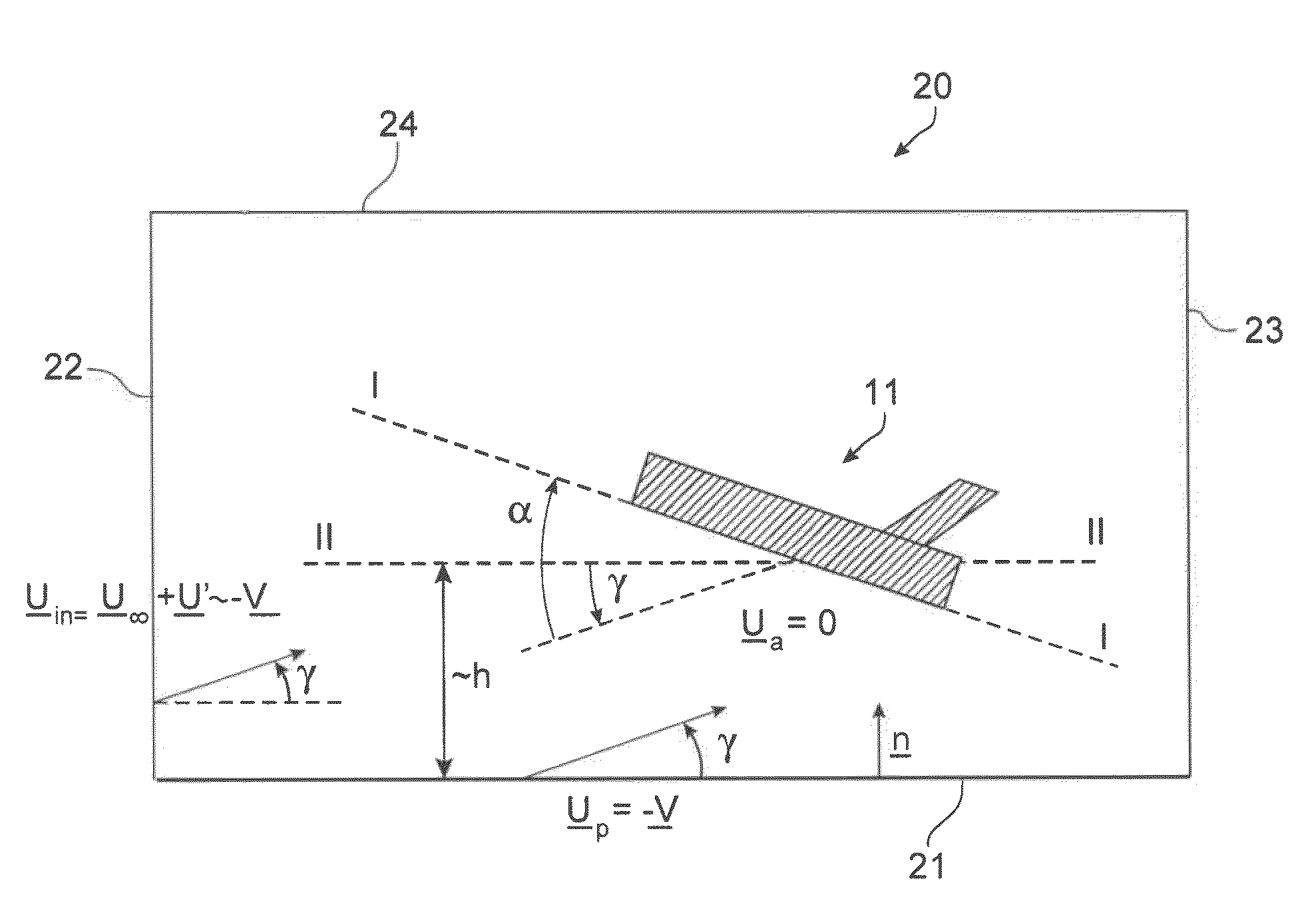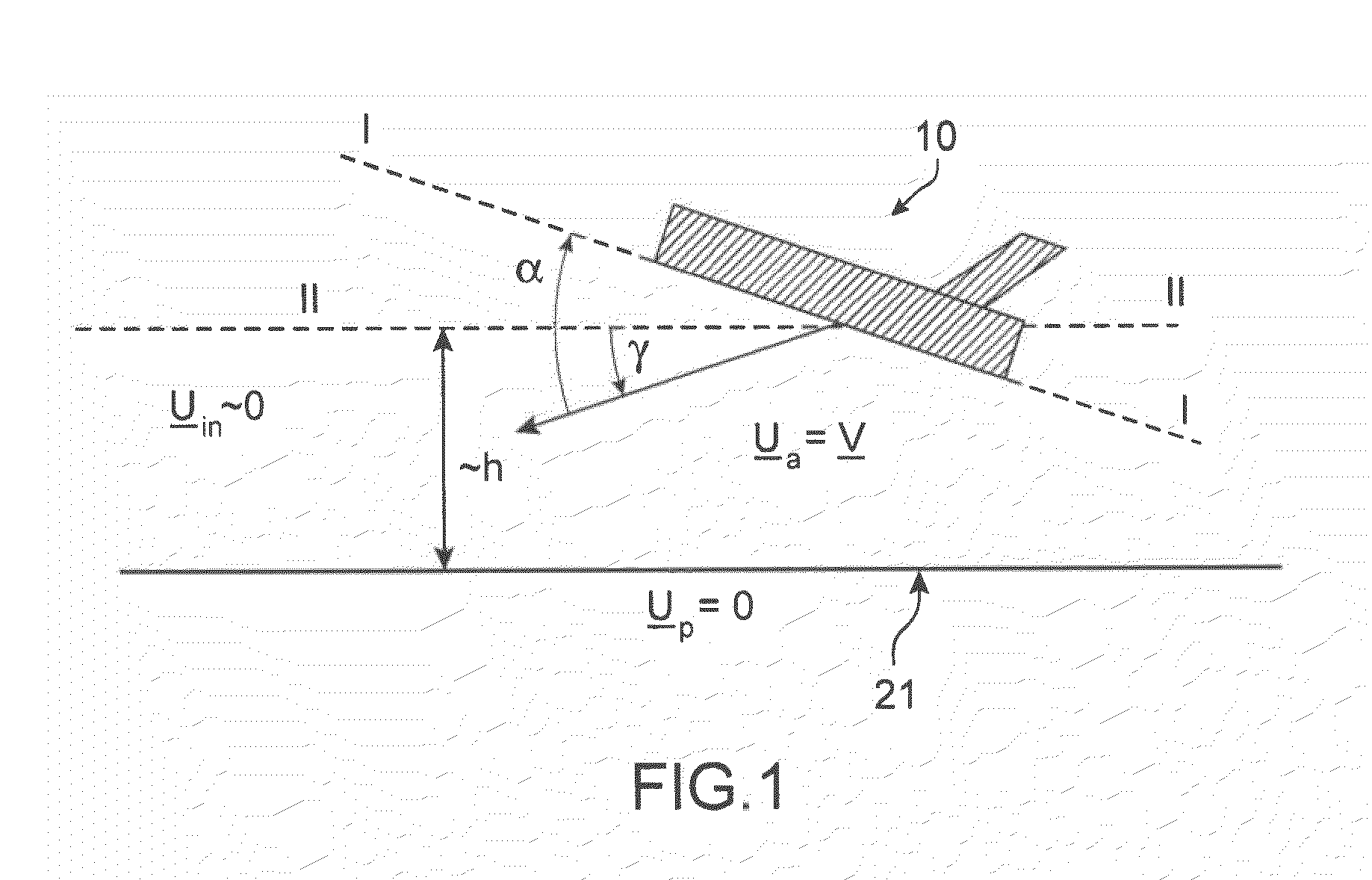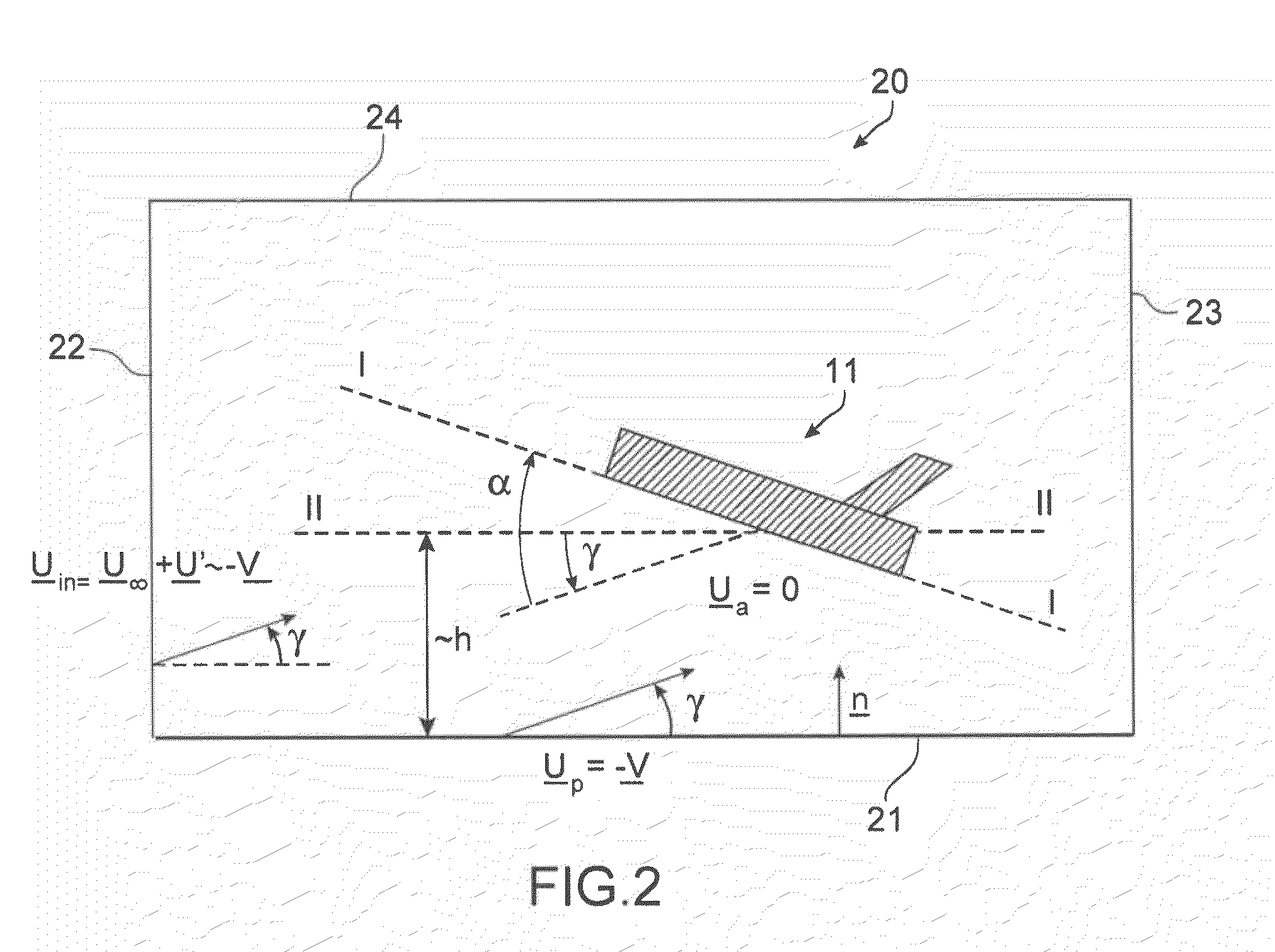Method and tool for simulation of the aerodynamic behaviour of an aircraft in flight close to the ground
a technology of aerodynamic coefficients and aircraft, applied in the field of aerodynamics, can solve the problems of difficult or even impossible to isolate the specific difficult to adapt, and difficult to determine the influence of the ground effect on the aerodynamic coefficients of the aircra
- Summary
- Abstract
- Description
- Claims
- Application Information
AI Technical Summary
Benefits of technology
Problems solved by technology
Method used
Image
Examples
Embodiment Construction
[0054]FIG. 1 shows a diagrammatic longitudinal sectional view of an aircraft 10 in flight close to the ground 21 in the fixed coordinate system of the ground.
[0055]The aircraft 10 is in the landing phase. It is moving at a speed V towards the ground represented by the lower plane 21, in an environment of air at rest. The speed V is a speed characteristic of the aircraft movement, and it may be the movement speed of the centre of gravity of the aircraft. The speed V may be of the order of a few tens of meters per second, for example 70 m / s.
[0056]The speed vector V forms an angle denoted α, with the longitudinal axis I-I of the aircraft 10. This angle is called the angle of incidence in this description. The angle of incidence α may be between 0 and 20°. For information, this angle is also called the angle of attack (AoA).
[0057]The speed vector also forms an angle γ or slope, with a horizontal plane II-II parallel to the ground 21. For example, the angle γ may be between −5° and 10°.
[...
PUM
 Login to View More
Login to View More Abstract
Description
Claims
Application Information
 Login to View More
Login to View More - R&D
- Intellectual Property
- Life Sciences
- Materials
- Tech Scout
- Unparalleled Data Quality
- Higher Quality Content
- 60% Fewer Hallucinations
Browse by: Latest US Patents, China's latest patents, Technical Efficacy Thesaurus, Application Domain, Technology Topic, Popular Technical Reports.
© 2025 PatSnap. All rights reserved.Legal|Privacy policy|Modern Slavery Act Transparency Statement|Sitemap|About US| Contact US: help@patsnap.com



